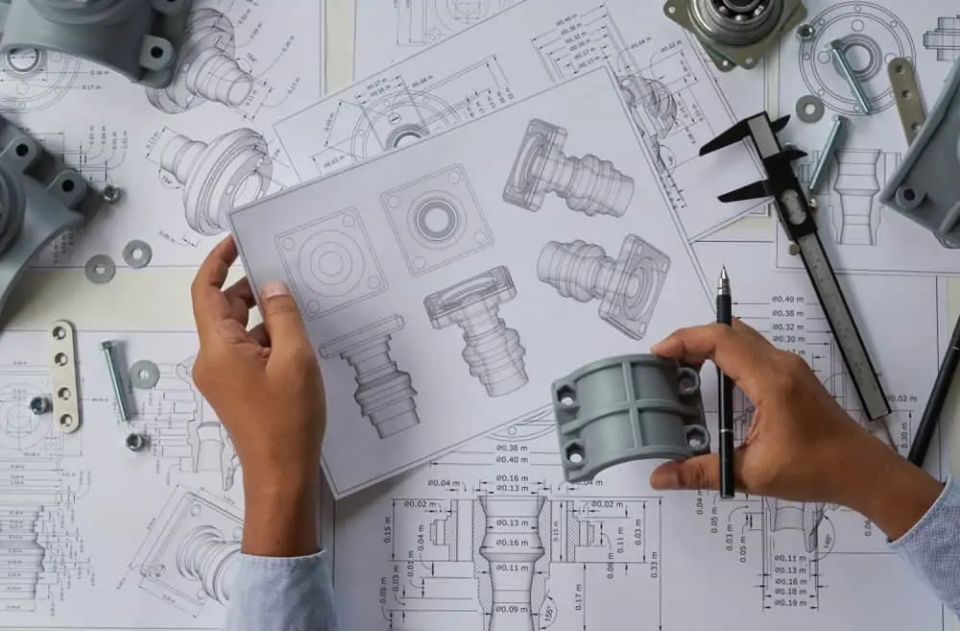Design plays an essential role in the creation of products that not only look visually appealing but also offer functional value to end-users. In today’s competitive landscape, businesses seeking to introduce new products or revamp existing ones must focus on delivering designs that capture the essence of their brand while meeting customer expectations. This is where professional design agencies come in, bringing expertise, creativity, and technical know-how to take ideas from the drawing board to the market.
What is Industrial Design and Why Does it Matter?
Industrial design is the process of developing products that combine both functionality and aesthetics. Unlike traditional design, which often focuses solely on appearance, industrial design takes into account usability, ergonomics, and overall user experience. It’s about creating solutions that are practical, intuitive, and visually engaging, making a significant impact on the success of a product in the marketplace.
Successful industrial design goes beyond creating a beautiful exterior. It involves understanding the product’s purpose, the environment in which it will be used, and the needs of the people who will interact with it. The end goal is to develop products that are easy to use, cost-effective to manufacture, and align with the brand’s identity.
The Product Development Process
The journey from concept to a market-ready product involves multiple stages, each requiring a specialized skill set. A comprehensive product development process includes the following key steps:
- Research and Ideation: The initial stage involves thorough research to understand the market landscape, target users, and existing solutions. This is followed by brainstorming sessions to generate innovative ideas that meet the project’s goals.
- Concept Design: Once the foundational research is complete, the focus shifts to sketching and modeling. This phase involves creating preliminary designs, experimenting with different shapes, materials, and technologies, and selecting the best concept to move forward.
- Prototyping and Testing: Prototyping is essential for turning ideas into physical models. These prototypes are then tested to evaluate functionality, durability, and usability. Feedback gathered during this stage is used to refine and improve the design.
- Engineering and Production: After the design is finalized, it’s time to prepare for production. This involves selecting materials, determining manufacturing methods, and ensuring that the design can be scaled up without compromising quality.
Each phase of the process is crucial in shaping the final product. Working with a design agency that has experience in industrial design can ensure that every aspect is carefully managed and executed to achieve the desired outcome.
Choosing the Right Design Partner
Selecting the right design agency is crucial to the success of any product development project. A professional agency brings a wealth of experience and a diverse skill set, allowing them to tackle complex design challenges. With expertise across multiple industries, they can offer valuable insights and innovative solutions that set your product apart from competitors.
One such Industrial Design Agency specializes in helping businesses turn complex ideas into commercially successful products. Their approach combines a deep understanding of human behavior with technical expertise, allowing them to create products that are not only visually stunning but also highly functional. From consumer electronics to healthcare and beyond, they have a track record of developing designs that redefine user experiences and elevate brands.
The agency’s services range from early-stage research and ideation to prototyping, testing, and final production support. By leveraging the latest tools and technologies, they ensure that each project is executed with precision and attention to detail.
Benefits of Partnering with a Design Agency
Collaborating with a professional design agency can provide numerous advantages for businesses looking to innovate. Here are some of the key benefits:
- Expertise and Experience: Design agencies bring specialized knowledge and experience, ensuring that each aspect of the project is handled with expertise.
- Efficient Project Management: With a dedicated team managing the project, companies can avoid common pitfalls and delays, keeping the development process on track.
- Access to Resources and Tools: Design agencies have access to cutting-edge tools and technologies that facilitate efficient design and prototyping.
- Tailored Solutions: A good design agency takes the time to understand your brand and target market, delivering solutions that align with your business goals.
Conclusion
In conclusion, industrial design is a critical component of successful product development. Working with a professional design agency can streamline the process and ensure that the final product meets the highest standards of quality, functionality, and aesthetics. By collaborating with a team that understands both the creative and technical aspects of design, businesses can transform their ideas into tangible products that stand out in the market.

